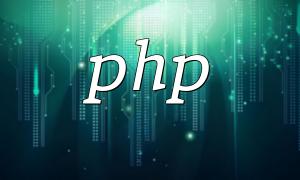During PHP development, predefined constants offer convenient ways to retrieve details about the current runtime environment. These constants allow developers to access information like PHP version, OS type, execution interface, and error levels efficiently.
This constant returns the current version of PHP. Example output:
echo PHP_VERSION; // Outputs something like 8.1.6
Returns the name of the operating system PHP is running on. For example:
echo PHP_OS; // Outputs Linux, WINNT, Darwin, etc.
This constant returns the Server API that PHP is using. Common values include cli (Command Line Interface), apache2handler (Apache module), and cgi-fcgi (FastCGI).
echo PHP_SAPI; // Outputs something like apache2handler
Returns the appropriate line ending string for the platform. Useful for writing cross-platform compatible code.
echo 'Line 1' . PHP_EOL . 'Line 2';
Represents a bitmask that includes all PHP error types. Useful for enabling comprehensive error reporting.
error_reporting(E_ALL);
Represents fatal run-time errors. The script will terminate.
error_reporting(E_ERROR);
Non-fatal run-time warnings. Execution will continue.
error_reporting(E_WARNING);
Indicates notices that the script encountered something that could be an error, but execution is not affected.
error_reporting(E_NOTICE);
Represents user-generated error messages. Treated as fatal errors.
trigger_error("Custom error", E_USER_ERROR);User-generated warning messages, useful for debugging.
trigger_error("Custom warning", E_USER_WARNING);User-generated notices. Typically used for informative messages.
trigger_error("Custom notice", E_USER_NOTICE);The predefined constants described above are very useful in PHP development and debugging. Mastering them can significantly improve the robustness and maintainability of your code.









